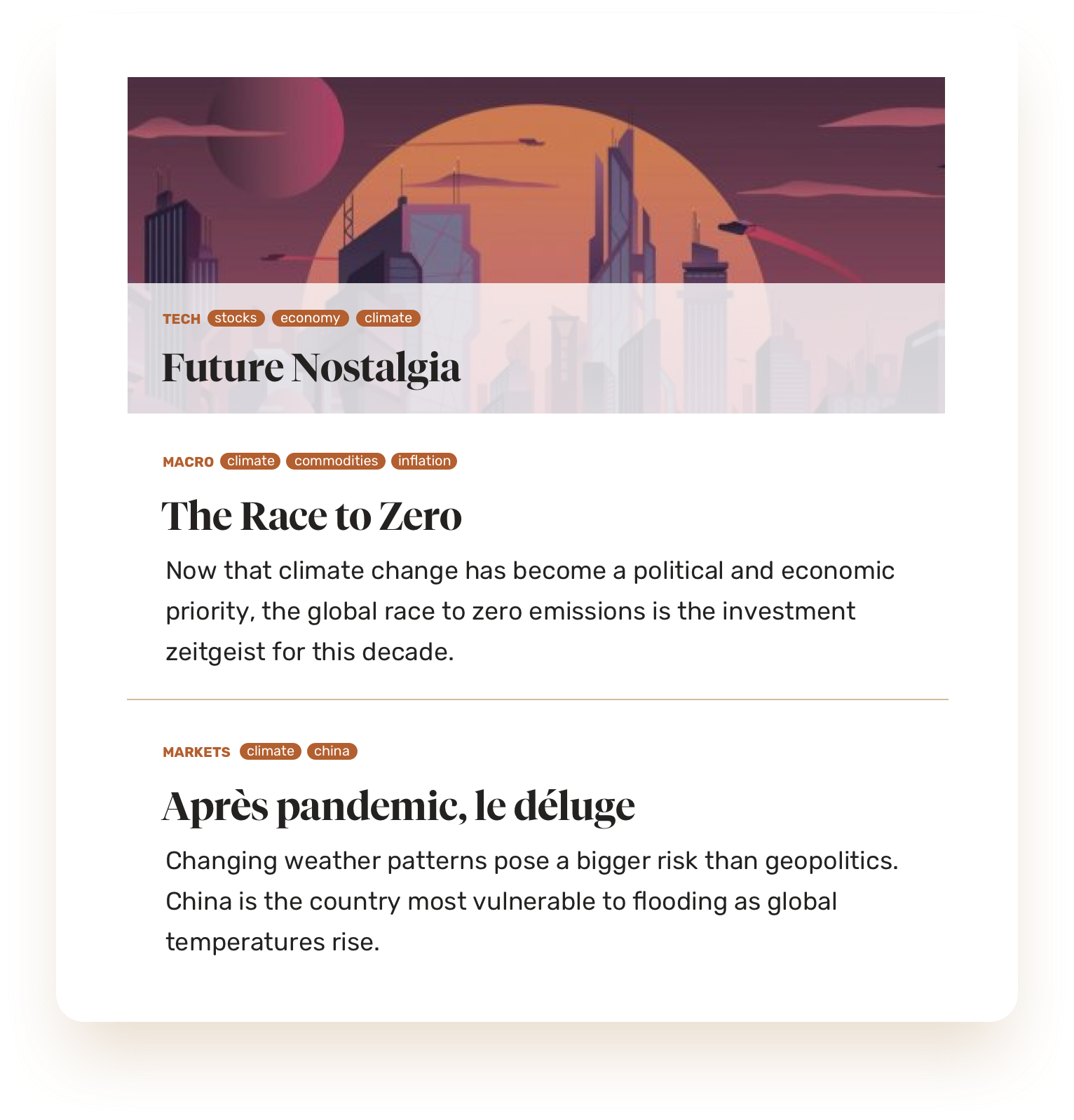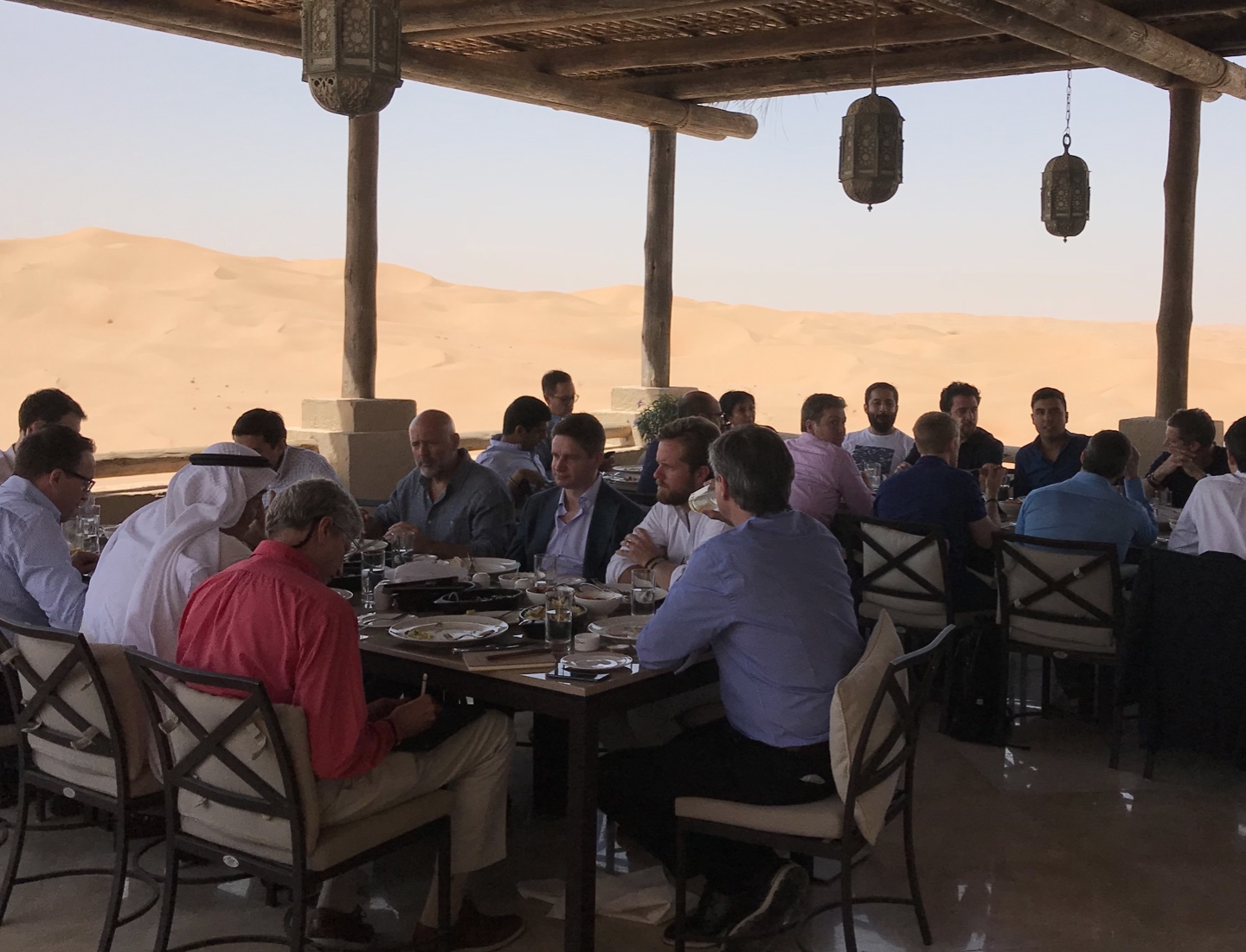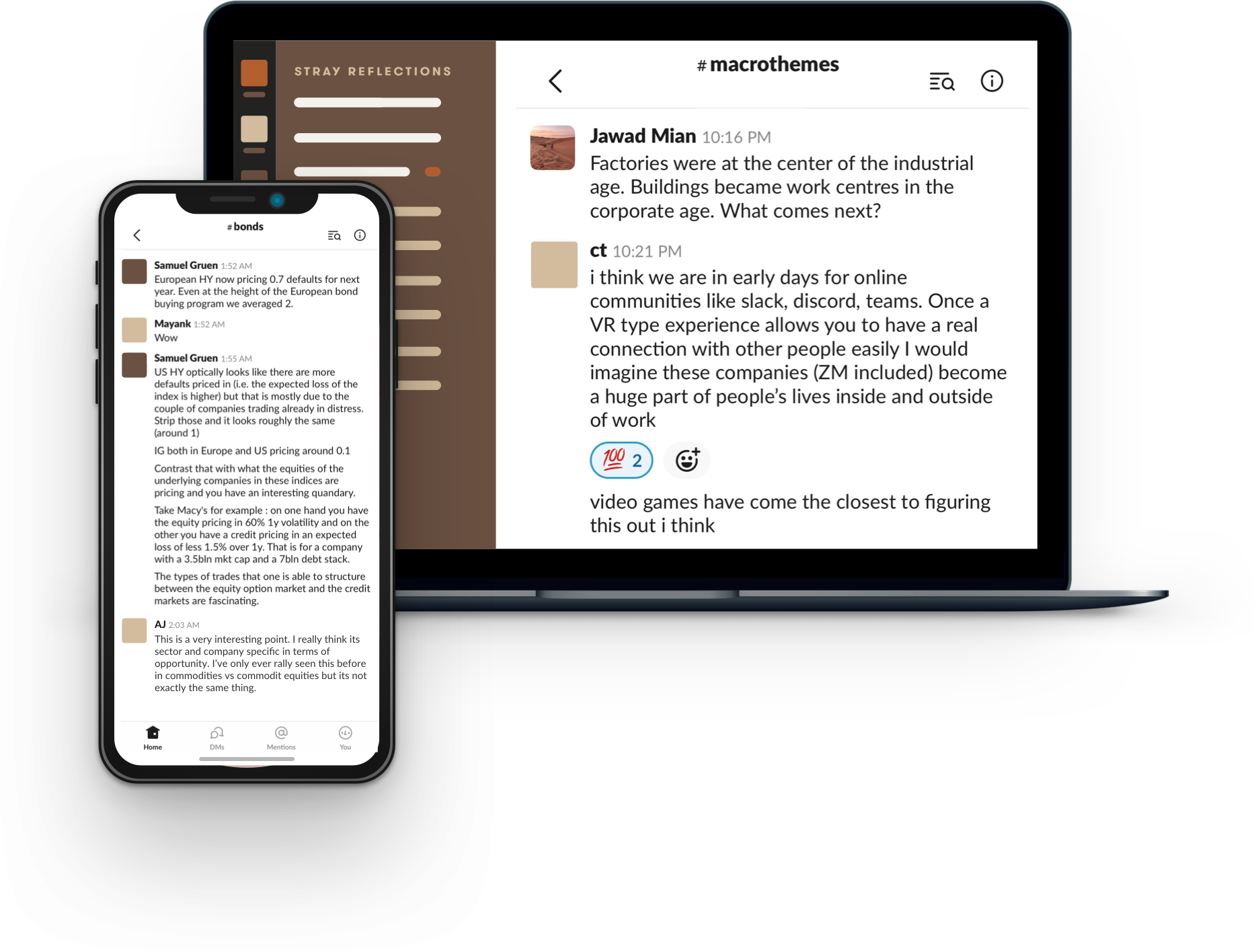The Speaker was put on the spot. One of our dinner rules is that if a participant does not share a chart with us on time, we search for something funny or embarrassing in its place and insert that in the handout. In this instance, Jawad pulled out an old email exchange with the participant from 2016 in which he shared personal observations about his investing journey.
The thinking and writing are so lucid and timely that we felt the whole group could benefit by making it public. There was silence as everyone took two minutes to read the exchange. The Speaker shifted in his seat as he realized what this chart was.
The email reads:
I have been thinking a lot about what really are my views, how do I form them and how do I argue them?
I do not have the same understanding of economics that you do. I don’t have the deep fundamental background that a lot of the analysts posses. I don’t have the statistical background that the quants have which enable them to look at options and volatility.
I come back to a couple of quotes I read/adapted. You invest as who you are and investing is like religion. You will soon reach a point where your body of knowledge will only take you so far and to move further you have to have faith (I read this in your newsletter).
So, I have to ask myself, “Who am I?” (I am sure you did not expect this letter to go here!)
I am a cautious individual. I find myself saying “I don’t know to most questions.” This puts me on the path to skepticism. I find it hard to accept that I have enough knowledge to predict the future with any degree of certainty. In every subjective situation, there are so many variables at play that we cannot possibly know off them, let alone about them.
Cynic is a tougher topic. Being cynical has to do with ego. A cynic questions negatively. He does not want to learn but wants to argue or put down someone. I would be lying if I said that I haven’t acted in that fashion. I recently read about the Arthashastra. The author mentioned about how the path to learning is achieved through shedding your ego. Ego is a very expensive suit that we wear. Ego pushes me to win an argument for the sake of winning, it forces me to feel jealous about your success and makes me wish for your fall relative to mine. It worries about external perception and validation and hence takes you away from the path of truth. This is such a basic point but it finally dawned on me. The way to learn is to shed your ego. This means be open to defeat. If someone knows more than you, learn from them. If someone has more than you, wish well for them and be thankful for what you have. If you don’t know about a certain topic, refrain from offering an opinion/empty words and say “I don’t know.” Don’t follow “I don’t know” with a 1000 words which mean nothing.
So, as a summary, I am consciously shedding my ego, steadfastly staying on the path of truth and want to experience life through emotions.
“How do you feel about all this now?” asked Jawad.
The Speaker took a deep breath. “What can I say? It is all there, laid bare... This is so embarrassing.” He went on, his eyes never looking up, “I have come to learn to invest how I am and not worry about what others are doing. External perception does not matter to me anymore and I feel more relaxed because of it.”
The Speaker is one of the smartest investors we know, and he exudes a rare combination of calm confidence and humility. We went around the table and everyone shared their own observations and experience.
One of the participants told a story of himself as a young altar boy. After a round of laughter, he vividly remembered an encounter when a woman came up to the priest and asked him, “How do you live with being right?” He never saw such a thing happen before and was stunned. The woman kept badgering the priest with that question. He recalls it in his investing today as his biggest losses have come after a solid period of “being right.” The opposite question, “How do you live with being wrong?” he considers often too when he is being challenged by a position.
Another participant recalled Jeremy Grantham’s March 2009 note titled, “Investing when terrified.” That is how he always feels. Investing is both risky and psychologically painful, so it is absolutely important to have a battle plan for investment and stick to it. It is the only way to overcome paralysis during tough times. “Process, process, process.”
“We are in the business of making mistakes,” another person said. The winning ratio for most successful traders is only 50 to 60 percent. That is emotionally difficult to live with. We need to realize, as Soros said, that imperfect understanding is the human condition and there is no shame in being wrong, only in failing to correct our mistakes. “The biggest risk we need to manage is our self.”
“I know I will always struggle,” said a participant. “The markets can never be mastered. I will never fully understand it.” But rather than despairing at the thought, he approaches investing with increased humility and devotion. “Survival is everything. This is what I love.”
One participant said he believes that a big part of the challenge the hedge fund industry is facing is that managers are not investing in ways that are consistent with their ethos. Either their skills are outdated (they feel it but can’t admit it), or the shackles imposed by institutional investors makes it too difficult to operate in accordance with their true nature. The bottom line is they lack existential flexibility. The question he always asks himself is, “Is this how I would invest my money?”
Coined in 1999 by psychologists David Dunning and Justin Kruger, the eponymous Dunning-Kruger Effect is a cognitive bias in which people assess their cognitive ability as greater than it is. A participant quoted this study to make the point that investors with low knowledge often profess high conviction. “It takes hard work and discipline to build conviction.”
One of the participants who was grateful to be able to transition from the sell-side to the buy-side talked about his interview. The principals at the fund said two words: “Be honest.” That is a simple instruction but such a powerful one when you give it deeper thought. He always keeps that in mind as he researches opportunities and makes recommendations. This instils more self-awareness, which is the hallmark of a great trader.
“I recommend reading two books by Ryan Holiday: Ego is the Enemy and The Obstacle is the Way,” said a participant. “Although, the lesson is itself in the title. That has been a profound discovery for me.”
Everyone thanked the Speaker for sharing his wisdom.

Photo: Pexels






